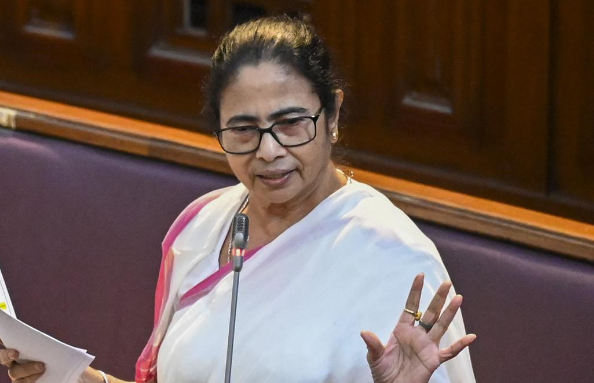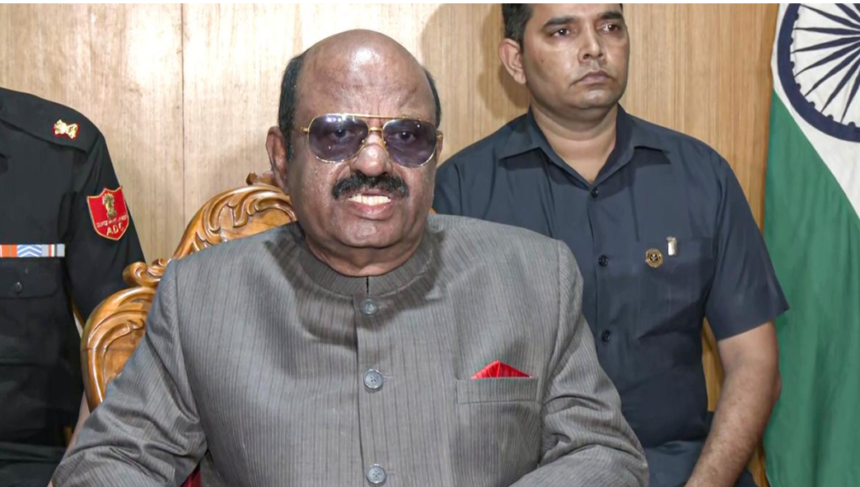In a Aparajita Bill fresh wave of political tension between the West Bengal state government and the Governor’s office, Governor C.V. Ananda Bose has described the recently passed “Aparajita Bill” as a “political gimmick.” The Governor, who has been increasingly at odds with the Mamata Banerjee-led Trinamool Congress (TMC) government, has demanded a technical report on the Bill, expressing concerns that it might be a mere “copy-paste” version of similar legislation passed by other states, including Andhra Pradesh, Maharashtra, and Arunachal Pradesh.
What is the Aparajita Bill?
The Aparajita Bill, named after the Sanskrit word for “unconquered,” is aimed at promoting women’s empowerment and protection in West Bengal. The legislation includes provisions to enhance the safety of women in both public and private spaces, establish support networks for victims of gender-based violence, and enforce stricter penalties for crimes against women.
While the objectives of the Bill appear laudable on paper, the friction between the Governor and the state government has escalated since the Bill’s introduction. According to sources close to Raj Bhavan, the Governor believes the Bill may not be as original as it seems. His demand for a technical review highlights concerns that the legislation could be a recycled version of similar laws passed in other Indian states, and therefore lacks specific provisions tailored to the socio-political landscape of West Bengal.
Governor’s Criticism: A Political Stunt?
Governor Ananda Bose has not minced words in calling out what he sees as the political underpinnings of the Bill. A source within Raj Bhavan reportedly mentioned that the Governor views the legislation as more of a “political gimmick” than a substantive step towards women’s empowerment. The timing of the Bill, coming just months before key elections, has raised eyebrows, with many political analysts questioning whether its purpose is more to garner votes than to address systemic gender issues.
“The Governor is deeply concerned that the Aparajita Bill appears to be a copy-paste of similar legislation passed in states like Andhra Pradesh, Maharashtra, and Arunachal Pradesh,” the source said. The Governor’s office also pointed out that some of the provisions in the Bill had already been implemented in these states, adding little new value in the context of West Bengal’s unique challenges.
The Political Context: Tensions Between the State and Raj Bhavan
The relationship between the TMC government and the Governor has been fraught with conflict. Governor Bose has often been at odds with Chief Minister Mamata Banerjee, particularly on issues related to law and order, administration, and now, legislative matters. His remarks about the Aparajita Bill further add fuel to the fire.
West Bengal has a history of strained relations between the Governor and the state government. Similar disputes were witnessed during the tenure of Bose’s predecessor, Jagdeep Dhankhar, who was also known for his frequent public spats with the TMC. The Governor’s role, while largely ceremonial in nature, has become a focal point of political contention, especially when the state government and the Governor belong to opposing political camps.
In this instance, the Governor’s sharp critique of the Aparajita Bill seems to underscore his increasing discontent with the state government’s legislative agenda. By calling the Bill a “political gimmick,” Bose has aligned himself with critics who argue that the TMC is using legislative measures to advance its political objectives ahead of the upcoming elections.
Copy-Paste Allegation: A Serious Concern?
The Governor’s claim that the Aparajita Bill is a copy-paste of similar legislation passed in Andhra Pradesh, Maharashtra, and Arunachal Pradesh raises significant legal and procedural questions. If proven accurate, this allegation could undermine the credibility of the West Bengal government’s legislative process. The Governor has reportedly pointed out similarities between the Aparajita Bill and laws passed in these other states, which aim at similar goals but are tailored to local conditions.
Each state in India faces distinct social, economic, and cultural challenges, particularly concerning gender issues. The argument against a one-size-fits-all approach to legislation is that what works in Maharashtra may not necessarily address the needs of women in West Bengal. For example, Andhra Pradesh’s legislation focuses on rural women, while West Bengal has a more urban demographic. If the Bill does not consider such nuances, its effectiveness could be compromised.
The Governor’s demand for a technical review suggests that he is not willing to approve the Bill until these concerns are adequately addressed. By seeking a report, he is essentially putting the onus on the state government to prove that the legislation is both original and impactful.
Mamata Banerjee’s Response
Unsurprisingly, the Governor’s comments have not gone down well with the state government. The TMC leadership has been quick to dismiss his criticism as politically motivated, with some party officials accusing the Governor of playing into the hands of the Bharatiya Janata Party (BJP), which is the main opposition force in the state.
Mamata Banerjee has often accused the Governor’s office of acting as a proxy for the central government, with the BJP using constitutional offices to destabilize her government. In this case, TMC leaders argue that the Aparajita Bill is a necessary and progressive step toward improving women’s safety and empowerment in West Bengal, and any delay in its approval could harm the very people the Bill seeks to protect.
TMC spokespersons have also pointed out that the Bill includes unique provisions that address specific challenges faced by women in West Bengal. For instance, the state has a higher rate of trafficking compared to other parts of India, and the Aparajita Bill reportedly includes special clauses aimed at curbing this menace. The TMC has rejected the Governor’s claims of “copy-paste” as unfounded and politically charged.
Political Ramifications
The Governor’s opposition to the Aparajita Bill is likely to have significant political ramifications. With elections on the horizon, the TMC is keen to project itself as a party committed to women’s rights and empowerment. The Bill is part of a broader strategy to attract women voters, a demographic that has been crucial to Mamata Banerjee’s electoral success in the past. 
By casting doubt on the Bill’s authenticity, the Governor is challenging this narrative. If the Bill is indeed found to be a copy of legislation from other states, it could weaken the TMC’s claim to originality and competence in governance. On the other hand, if the TMC can prove that the Bill is tailored to West Bengal’s specific needs, it could turn the tables and portray the Governor as obstructing progressive legislation for political reasons.
The BJP, for its part, is likely to seize upon the Governor’s criticism as a way to discredit the TMC. The party has been trying to expand its foothold in West Bengal, and any opportunity to undermine Mamata Banerjee’s government is welcome. The Governor’s remarks could thus become a flashpoint in the increasingly bitter battle for political dominance in the state.
Legal Implications and the Road Ahead
From a legal perspective, the Governor’s demand for a technical report could delay the implementation of the Aparajita Bill. Governors in India have the constitutional authority to withhold their assent to state legislation, refer Bills back to the state legislature for reconsideration, or even forward them to the President of India for a final decision.
If the Governor continues to withhold his approval, the state government may have to revise the Bill or provide additional documentation to prove its necessity and originality. This could lead to a protracted standoff, further complicating the already tense relationship between Raj Bhavan and the state government.
For now, all eyes will be on the technical report that the Governor has requested. The findings of this report could either vindicate the Governor’s concerns or strengthen the TMC’s case that the Aparajita Bill is a critical piece of legislation for women’s empowerment in West Bengal.
Conclusion
The controversy surrounding the Aparajita Bill highlights the ongoing power struggle between the West Bengal Governor and the Mamata Banerjee government. While the Bill is ostensibly about women’s safety and empowerment, it has become a political flashpoint, with both sides accusing each other of ulterior motives. As the standoff continues, the fate of the Aparajita Bill—and the broader question of women’s empowerment in West Bengal—hangs in the balance. ALSO READ:-The Impact of Artificial Intelligence on Labor Income: Insights from the Latest ILO Report 2024





